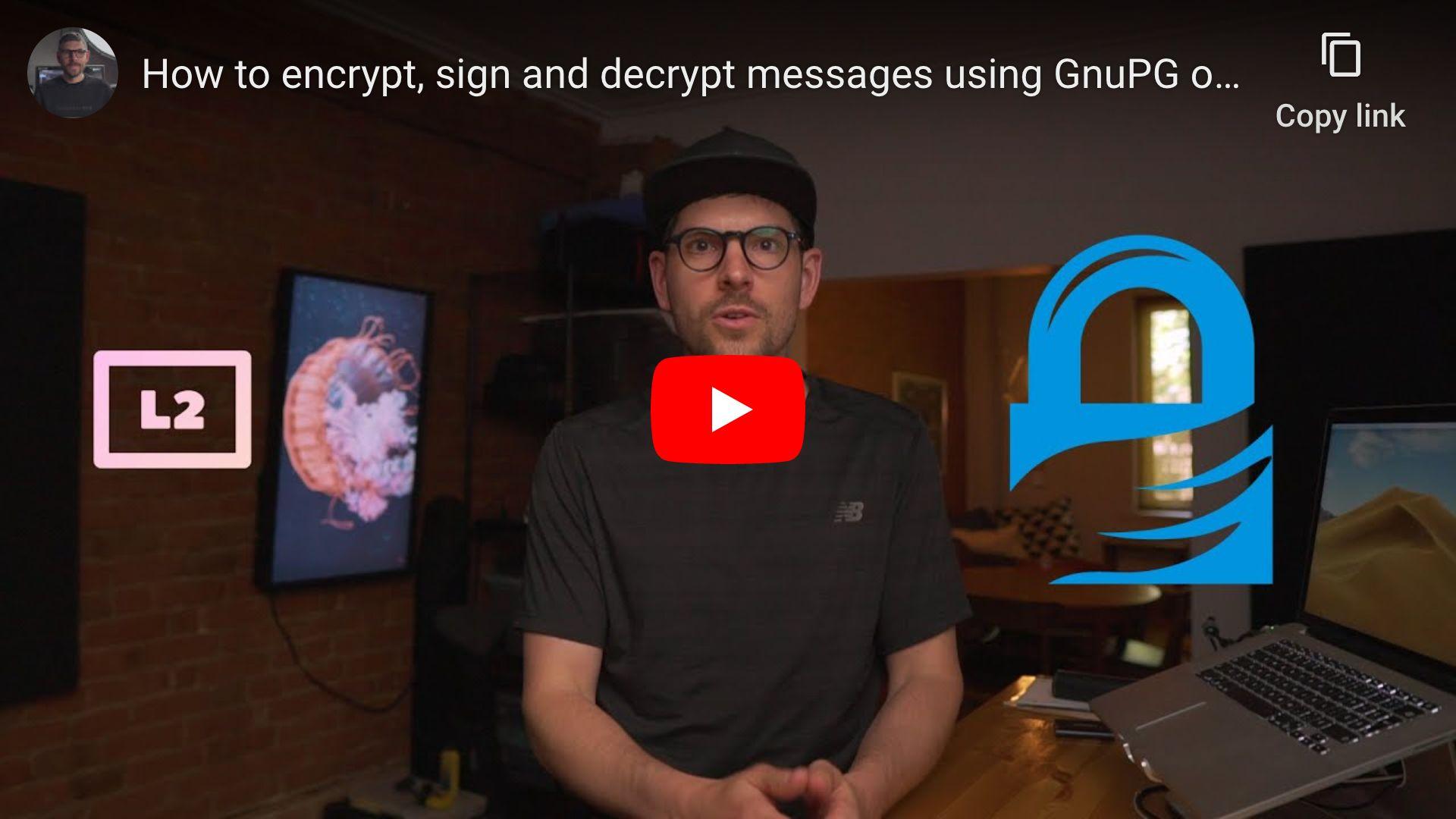Updated on GitHub 4 months ago (see history)
How to encrypt, sign and decrypt messages using GnuPG on macOS
Heads-up: this is a “getting started” guide. Learn how to harden GnuPG here.
Requirements
- Computer running macOS Big Sur or Monterey
Caveats
- When copy/pasting commands that start with
$, strip out$as this character is not part of the command
Setup guide
Step 1: install Homebrew
Step 2: disable Homebrew analytics
Step 3: install GnuPG
Step 4: generate PGP key pair
Step 5: back up ~/.gnupg folder (learn how here)
Heads-up: files stored in
~/.gnupginclude private keys which, if lost, results in loosing one’s cryptographic identity (safeguard backup mindfully).
👍
Usage guide
Export PGP public key
Heads-up: replace
john@example.netandjohndoewith email and name from step 4.
Import Sun’s PGP public key using key server…
imported: 1
👍
…or using PGP public key URL
Heads-up: verify web of trust to list missing keys.
imported: 1
👍
Verify Sun’s PGP public key using fingerprint
Open https://sunknudsen.com/, https://github.com/sunknudsen/pgp-public-key and https://www.youtube.com/sunknudsen/about and make sure above fingerprint (“E786 274B C92B 47C2 3C1C F44B 8C9C A674 C47C A060”) matches published fingerprints.
👍
Verify Sun’s PGP public key using web of trust
Heads-up:
0xC1323A377DE14C8Bis Sun’s legacy public key.
Paste, encrypt and sign message (enter line break and ctrl+d to quit edit mode)
Decrypt message to stdout and decode quoted-printable characters
Good signature
👍
Clear passphrase from GnuPG cache
Heads-up: when sending encrypted messages, don’t forget to include your public key.
